by Andy Stirling, Adrian Ely and Fiona Marshall
This is one in a series of four blog posts exploring ideas and case studies on ‘transformations’, drawing on research carried out in 2017 and looking forward to the STEPS Centre’s work in 2018. For background and links to the other posts, read the introduction.
There is no shortage of big problems in the world. Food, water, climate, energy, biodiversity, disease and war all provoke demands for ‘transformation’. But tackling all this is not just about solving ‘grand challenges’ with big solutions. It’s also about grappling with the underlying social and political drivers that are causing the world’s problems.
It’s often said that this kind of knowledge has to be ‘co-produced’. But what does co-production actually mean, and how can it help to create knowledge that leads to real transformation?
In this blog post, we’ll explore how the STEPS Centre has approached this challenge of co-production, with examples from two ongoing projects.
Two senses of co-production
The definitions of co-production can sometimes clash with or oppose each other.
For example, do we mean that to be useful in addressing any given problem, knowledge needs to be ‘co-produced’ in particular ways and settings by a diversity of different kinds of actor? This ‘positivist’ sense encourages us to look at how specific kinds of knowledge are produced in particular settings.
Or is ‘co-production’ about the unavoidable fact that all knowledge (of whatever kind), is always inherently and unavoidably co-produced alongside the social orders in which it is shaped and driven? In this ‘constructivist’ sense, context, culture and power can help to shape the forms taken by all understandings – for better or worse.
These two senses of ‘co-production’ are not interchangeable. If it leads to a sense of complacency, then the ‘positivistic’ sense – that of inviting new people into a single specific process to contribute to one particular new kind of knowledge – can actually prevent us fully recognising the key message of the second (constructivist) kind of co-production. That message is that knowledge is imprinted by power. While this doesn’t have to be a bad thing, it tends to have worse outcomes if undiscussed or unrecognised.
In this latter ‘constructivist’ view, attempts to engineer a single integration of knowledge will always depend on the situation and people involved. Other ways of integrating will always be possible, and lead to different possible conclusions.
This means there are some very concrete tensions between whether the benefits of co-production are seen to lie in striving towards single comprehensive bodies of knowledge, or a pluralist sensitivity and appreciation for a persistent diversity of understandings.
practical implications
So what’s the practical point of all this? What can we learn about the conditions under which research into real-world examples of development challenges can and can’t best help achieve real transformative change?
Here, we offer some lessons we’ve been picking up in our own far-from-perfect struggles, along with many others.
Specifically what we explore here are three basic messages:
1) Relationships matter
First, knowledge is not ‘plug and play’. Relationships matter. This stems from understanding ‘co-production’ in its deeper (constructivist) sense – recognising how knowledge is always shaped by the social relations bearing on its production – which it then in turn helps to reshape.
In other words, transdisciplinary knowledge doesn’t just simply represent the phenomena it is supposed to describe. It will also reflect the disciplinary institutional and cultural conditions in which it was produced.
For example, our work on urbanisation in South Asia explores how rapid urbanisation affects the village farming practices & livelihoods on the fringe of cities. The informal economy and local practices, often neglected in planning and policy, clash with mainstream interventions that are supposed to benefit everyone – like the ‘clean and green’ relocation of polluting industries into peri-urban areas, or the appropriation of farmland there for tourism-friendly green spaces.
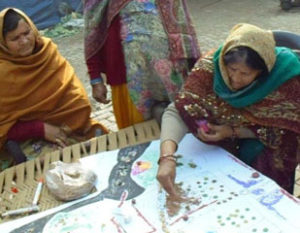
Drawing on the rich, embedded, experiential knowledge of citizens can help in reshaping how the city changes. But even among the research team, we had very different views on what sort of knowledge needs to be collected, in what way, and how it should be analysed and presented. This has meant carefully considering and negotiating disciplinary perspectives and associated methods/approaches, and their implications for the research. What is critical are a shared commitment to the issues, the building of relationships and trust, and the willingness to experiment, reflect on and adapt methods and approaches.
In another project, the ‘Pathways’ Network, we are trying to understand and contribute to transformations in which people and ecologies are entangled in six locations around the world. In line with STEPS methodology, this has involved engagement across disciplines and institutions from the early stages. In each of our six research ‘hubs’, locally-defined problems were identified through co-design workshops. These informed three-year research projects that have periodically convened researchers and actors from government, the private sector and civil society in so-called transformation labs or ‘T-labs’.
One of the lessons has been that the very process of bringing together groups of people who are new to each other around a particular problem is productive. It allows knowledge and views to be exchanged in new ways. The process has also shown us some tensions and synergies between academic knowledge and the experiential knowledge held by activists and practitioners.
2) Power shapes knowledge production
Second, there is the crucial importance of power-in-knowledge. In all the talk about ‘evidence based policy’ it is easy to think that the main challenge is simply one of ‘speaking truth to power’. But producing effective knowledge for progressive transformation is also crucially about ‘speaking truth about power’. This recognises the many ways in which power in the process of producing knowledge can imprint upon the knowledge that is produced.
Without addressing this, the way that research is structured by various kinds of focus, categories, reductions and simplifications may inadvertently make patterns of exclusion worse.
In this light, the kinds of knowledge that need to be co-produced are not just knowledges about progressive transformation. So co-production doesn’t mean just ‘including’ people who wouldn’t normally be invited – it means making the relationship equal. People most affected by the potential outcomes of research should not just be invited in to have their say, but afforded equal respect and agency in the knowledge production process.
During our research on urbanisation in South Asia, we have reflected on the power relations in knowledge production with those directly involved in the research. This includes thinking about the members of the research team and who could be brought into it, and articulating the value of other people’s contributions. It also involves looking together for chances to intervene in emerging dialogues and debates in ways that highlight alternative perspectives and constructive terms of engagement. We think of this in terms of ‘distributed alliance building’ across sectors and scales, but within formal decision-making and outside it.
For example, we are working hard to make formal links between food systems, environmental pollution, health and poverty in currently siloed city region, food and environmental management; and linking up with local health professionals, filing Public Interest Litigations and providing information to support local activism against particular polluting industries. The balance and axis of control or power can shift, and we need to be ready for it when this happens.
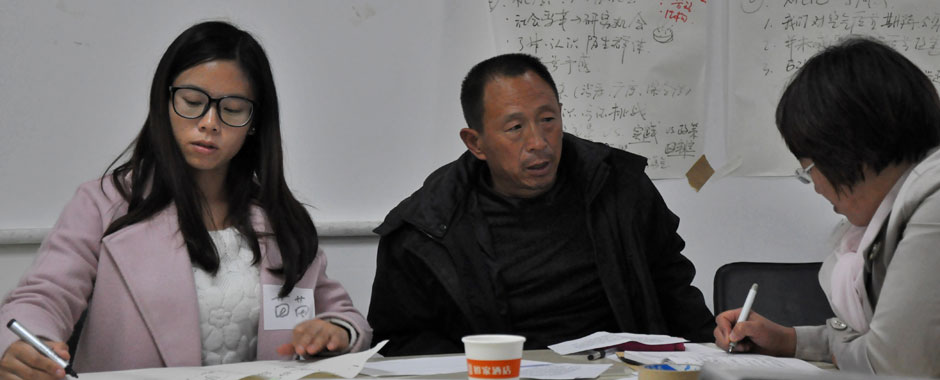
In our Pathways Network project, we have also seen how new encounters can shift assumptions among powerful actors about what they know. Bringing government officials together with laid-off workers in Hebei province, China enabled them to hear first-hand the stories of those adversely affected by ‘green transformations’ – often forcefully articulated. In a context in which officials rarely come into direct contact with those at the ‘receiving end’ of their policies, this led to new relationships between different groups of stakeholders, as well as between them and researchers. New or different relationships and increased empathy may help contribute to changes in behaviour or policies with transformative potential, even though these processes are difficult to document or analyse.
3) Co-production is slow knowledge
The third key lesson that flows from this is that co-production in its deepest sense is ‘slow knowledge’. There is a need and responsibility to resist the pressures of modern academia and policy making: quick fixes, neat solutions, disciplined schedules, short attention spans, branded processes, and the appropriation of credit for the outcomes of research. Co-production in the necessary deep sense is not just about one-off projects, exercises or tools. It is about the long-run forming of high-quality relationships spanning different social divides. History matters.
This does not mean that specific projects with limited duration cannot help in this process. As we shall see below, they are essential. But for all the noisy claims that might be made, such exercises are most transformative when they nurture and highlight (rather than appropriate and sideline), the complex histories in which they are embedded. They must acknowledge with humility that they are small parts in much longer, broader and deeper movements of change, from and into which they feed.
In our work on urbanisation in South Asia, we have seen the importance of building legitimacy for subaltern knowledge and being ready to act when opportunities arise. Here there are no quick fixes, and some interventions can backfire. For example, raising awareness of contaminated food in peri-urban areas in isolation, has previously led to a crisis responses and ‘solutions’ such as the removal of small-scale farmers from the land (and their source of livelihood) – instead of supporting the farmers to produce food safely.
Socially just pathways in urban settings require a ‘revisioning’ of the relationships between water, food, environment and health, which takes time. For those involved in producing knowledge, this often means ‘adding up’ activities across multiple research initiatives, allowing us to understand long-term processes and opportunities to intervene in them.
In the ‘Pathways’ network, each hub is conducting two T-lab events over the lifetime of the project. In all the cases in the project, in Kenya, Mexico, India, the UK, China and Argentina, these specific opportunities of co-production exist within much longer-term histories of interaction.
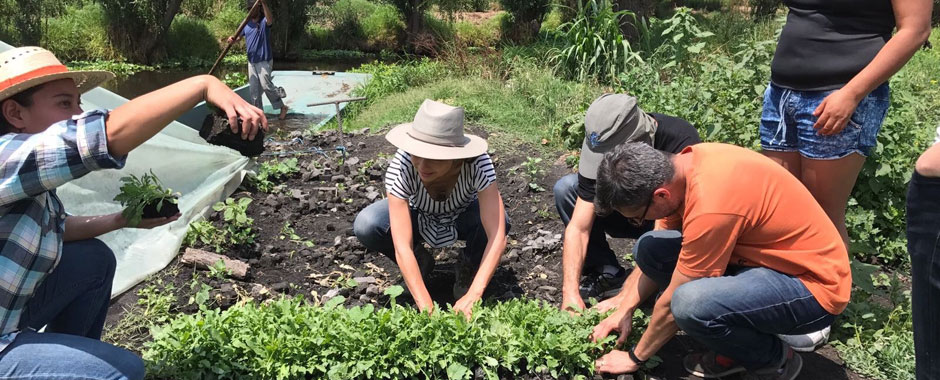
Under such conditions, learning is about a process of engagement, forming deeper relationships and potentially wider alliances. Over the years, these are reinforced as positive experiences of co-production lead to an appreciation of the value of working across disciplinary and organisational perspectives. And where people trust each other enough, they can face the inevitable challenges (and sometimes failures) openly and together, contributing to shared learning and a better basis for co-producing empowering knowledge into the future.
Politics and co-producing knowledge
When it is said that knowledge is political, this often means that people use knowledge – from scientific papers to everyday practical experience – in ways that are (or should be) subject to debate, negotiation and other political processes.
But looking at co-production in this way shows that the politics doesn’t just begin when the knowledge is delivered. The creation of knowledge itself is political. And the different meanings and lessons around the ubiquitous language of co-production discussed here, show that these politics come in different shapes and flavours. The message of this blog is that each different meaning has different strengths and weaknesses and complementary lessons.
One practical consequence of this, is that different knowledges – of the kinds needed for real progressive transformation – cannot just be added together in some single process, defined by neatly codified (often branded) methods and tools.
Instead, co-producing knowledge for progressive transformation is about forming particular kinds of social relations. And – as recognised in the aspirational values of science itself – the more equal these relations are, the less vulnerable knowledge becomes to potentially negative effects of power. What could be more political than that?
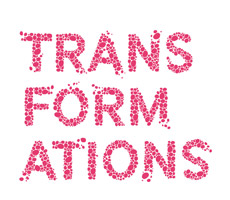 Faced with a series of social and environmental stresses and shocks, there are urgent calls for radical, systemic change. But, as past and present experience show, this can take many forms. What does it take to make sustainability transformations emancipatory (caring), rather than repressive (controlling)?
Faced with a series of social and environmental stresses and shocks, there are urgent calls for radical, systemic change. But, as past and present experience show, this can take many forms. What does it take to make sustainability transformations emancipatory (caring), rather than repressive (controlling)?
Find out more about our theme for 2018 on our Transformations theme page.
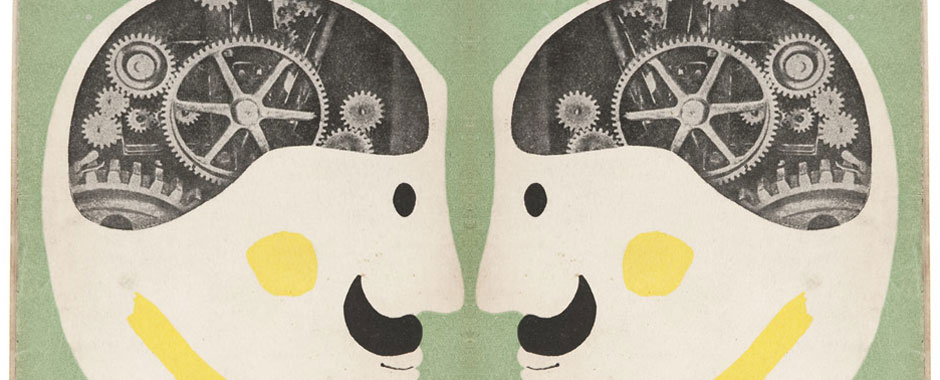
You talk about transformation. Today media is so powerful, we can sand any massage within minutes any where. But we are using this discovery’s for different purposes. How much agriculture institutions we have opened in village sides..? We never bothered about electricity which is needed for farming community..! Only all facilities where created for some of selfish communities. No world forums have decided about stop manufacturing and researches of destructive things like nuclear weapons, harmful camicales, plastic etc. What we have created …? Only facilities. Without doing physical activity human will die early. We produce more cars but never thought about patrol..? We need all things will be done as soon as possible, you give facility to them where quick things where needed. All problems where created by human. Why we like simple interior village life…! I just say one thing, use your media creation in useful way, where it is necessary. There were so many useful massages and work are needed for the true changes of this world.
Andy, we have not met but I have been a fan of your work since reading your article “Science, Precaution, and the Politics of Technological Risk” (which I constantly cite in my presentations and workshops) and have since then pretty much focused on how, while in the domain of ignorance, to respond to biological risk in practical terms .
It has been a wild journey. Starting from the twin points of accident causation theory and risk perceptions, it has grown like Topsy to include systems and complexity, neuroscience and cognition, naturalistic decision-making, communication, teamwork, group dynamics, leadership, human performance (stress, fatigue, distraction, emotion, personality, cognitive overload, design and performance modes, including habit) and hence motivation (mindsets and self-determination, influence, persuasion, manipulation, inspiration, grit, and positive deviancy), how we learn collectively (problem-solving, innovation, creativity) and individually (spacing, interleaving, difficulty, testing, deliberate practice), how we teach (fun through trial and error, self-pacing matching skill to challenge), and self-directed learning (including communities of knowledge and addictive games). Finally, I have been looking at the cultures needed to create the conditions where organizations can achieve high reliability through continual improvement (traditionally five – informed, just, reporting, learning and flexible, to which I would add deliberate practice – praxis – and accountability), how we get there from here (change management) and the organizational structures which support sustaining that level of safety excellence and adaptability to rapid environmental change (including lean, agile, scrum, HRO, DDO, resilient engineering, STAMP and FRAM). Each of these proposed structures has added something to my understanding of what is required. None has entirely satisfied me although, at least at the 30,000 foot level, the HRO concept has come closest.
All of this is a very long introduction to Laloux’s ideas on the need for a new organizational structure. He talks of a Teal, or Evolutionary, Organization built around the ideas of self-organizing teams (of 10-50, preferably on the smaller end of the scale) with no hierarchy or strategy, and minimal staff function – i.e. mimicking how nature does it in evolution. One of the results is constant and distributed ‘slow learning’ facilitated by the fact that there is no centralized power, and so no fear impediment to admitting mistakes or failures and hence no barriers to recognizing the need to learn and improve or actually doing it. Anyone, literally anyone, can identify issues and spark the improvement process at any time. And because of the processes put in place to emphasize the organization’s purpose, not profit, on the one hand, and the team’s and organization’s results, rather than the individual’s on the other, learning is co-produced. Thus those with the most healthy relationships end up being the best enablers of learning. Sound familiar?
You are probably well aware of his work, but if not, I highly recommend his book, Reinventing Organizations. This “Evolutionary Organization” structure comes closest to where my research is leading me, and I think aligns rather nicely with the ideas in your blog post above. However, there is one area I shall be exploring with him – how do we square the non-hierarchical structure of this type of organization with a highly regulated environment, such as GMOs, BSL4 labs or nuclear power? I know there must be answers – one of his example companies was a global power generator and distributor – but I have not found them yet.
Should you be interested, I’d be most interested in meeting up when I am next in the UK and further exchanging ideas. I’m particularly interested in your views on how all this applies in highly regulated sectors.
On a very different note one may want to examine a possible approach, which call for community participation. A key aspect of transformation will remain ability to restore natural stocks or ecological capital and have meaningful occupation for people and communities. Here is just one of the ideas:
Can one conceive of a community based nature and habitat restoration projects where meals are cooked and eaten together funded by government or any other sources apart from the wage per say. The sourcing of food and making is as local as possible. The working environment is as flexible as possible. This means one can start early and finish by the afternoon mealtime. Or take a break in the afternoon and spend another couple of hours in the evening etc… This approach might be replicable and will honor the context and community’s active participation in any such programs.
All monetary or other provision by the government is well supported through community participation. For that matter it can be a pre-requisite for any such funding.